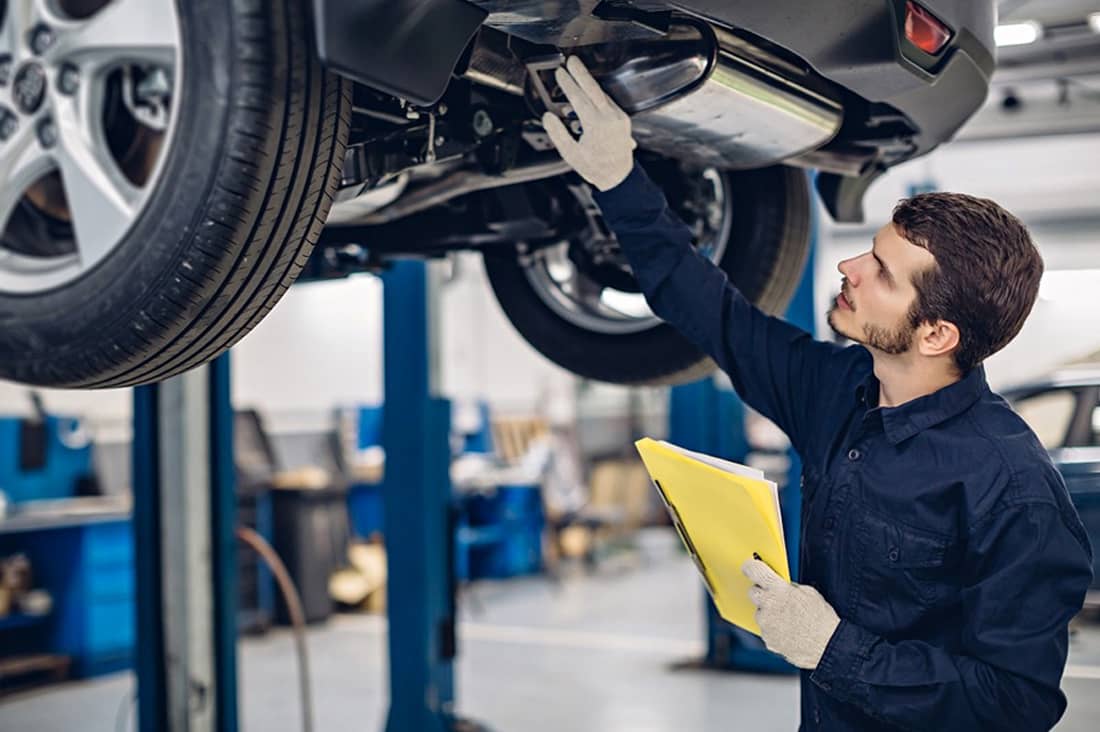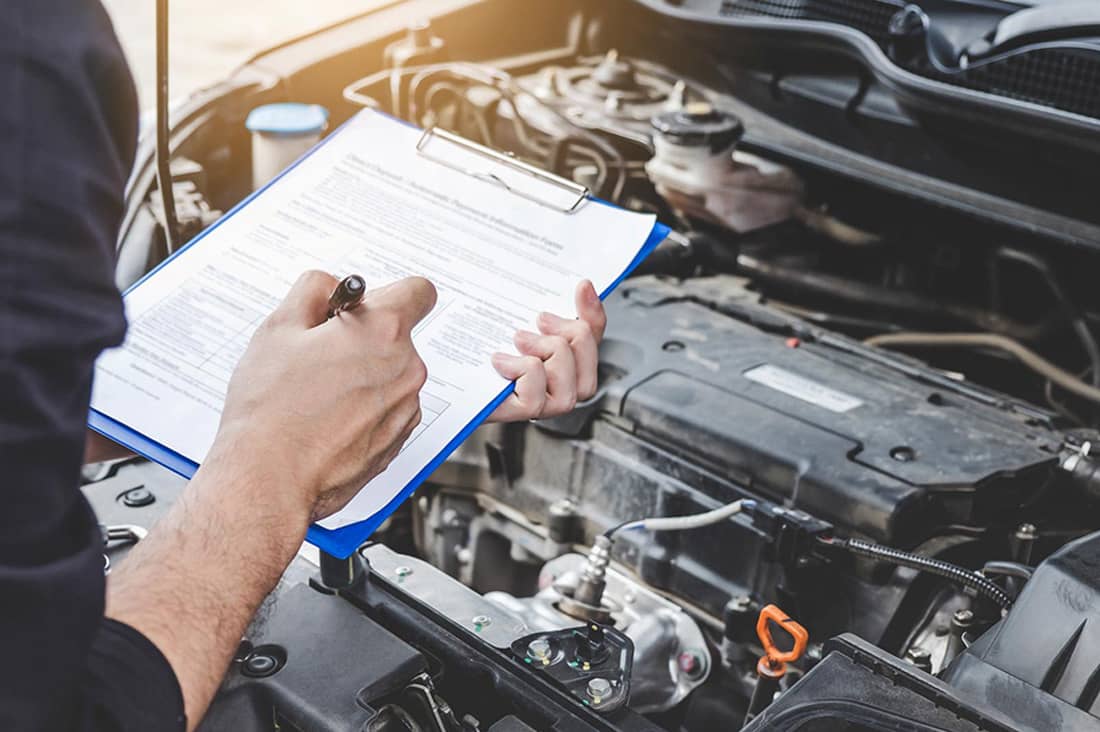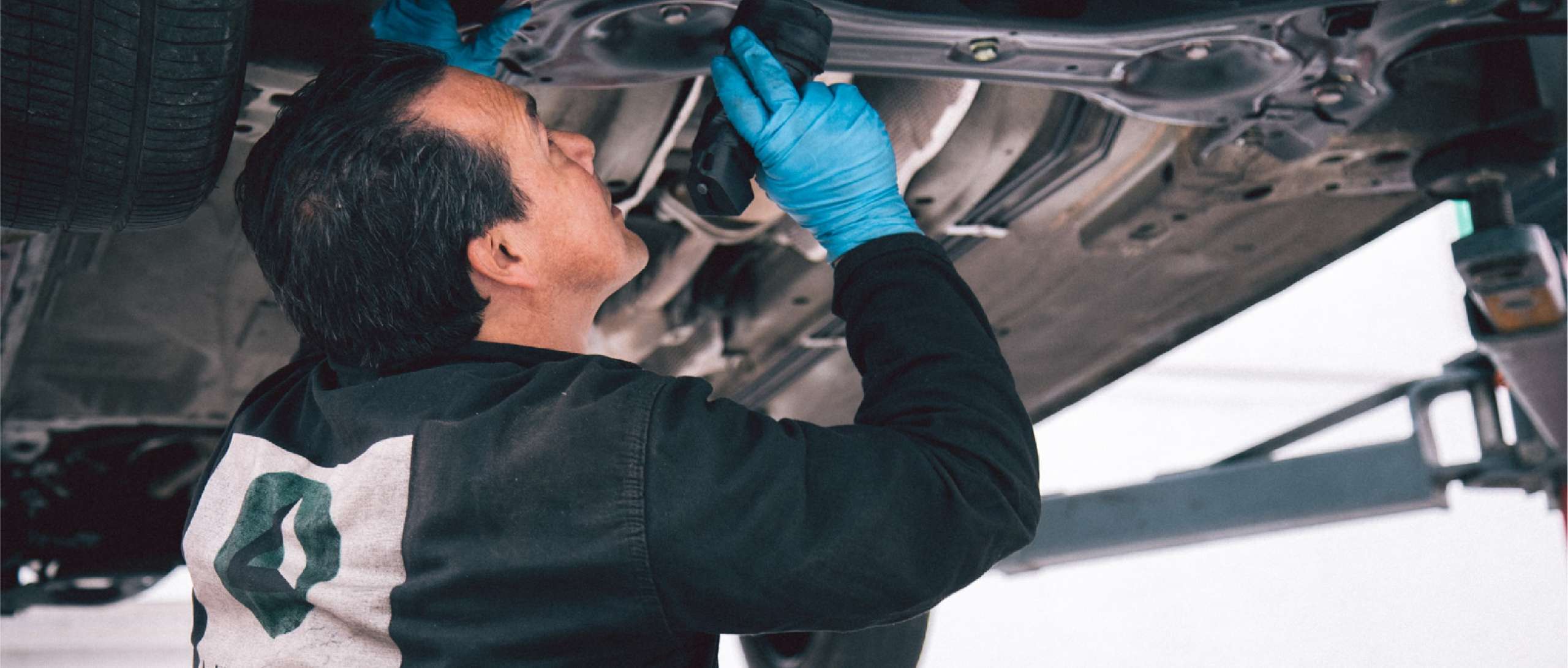Revisin Del Coche: Gua Completa & Consejos Esenciales
Is your car a ticking time bomb, or a well-oiled machine? Regular car inspections are not just a suggestion, they're a critical investment in your safety, your vehicle's longevity, and your wallet's well-being.
The world of car maintenance can seem daunting, a maze of unfamiliar terms and potential expenses. But understanding the basics of car inspections is crucial for any vehicle owner. These inspections, often referred to as "revisions" in some regions, are a systematic process of checking various components of your car to ensure they are functioning correctly and safely. They are a proactive measure, designed to catch potential problems before they escalate into costly repairs or, worse, compromise your safety on the road.
A car inspection, in essence, is a comprehensive health check for your vehicle. It's a service performed to evaluate the car's overall condition, and detect any impending issues. This includes examining everything from the engine oil (often referred to as an oil change) to topping up essential fluids like brake fluid and windshield washer fluid. The goal? To identify potential problems early, before they can cause significant damage or, even worse, lead to dangerous situations on the road.
Here's a look at what typically gets inspected during a car revision, including, but not limited to, these crucial components:
- Engine: Checking for leaks, unusual noises, and overall performance.
- Brakes: Inspecting brake pads, rotors, calipers, and brake lines.
- Tires: Assessing tire pressure, tread depth, and overall condition.
- Lights: Ensuring all headlights, taillights, turn signals, and interior lights are working correctly.
- Suspension: Checking shocks, struts, and related components.
- Fluid levels: Verifying levels of engine oil, coolant, brake fluid, power steering fluid, and windshield washer fluid.
- Filters: Replacing air filters and oil filters as needed.
So, what exactly is checked during a car revision? The checklist is extensive, covering vital components that ensure your car's performance and safety. The scope can vary depending on the type of inspection and the age of the vehicle, but it typically encompasses the following areas:
| Component | Inspection Points |
|---|---|
| Engine |
|
| Brakes |
|
| Tires |
|
| Lights |
|
| Suspension |
|
| Fluid Levels |
|
| Filters |
|
This table presents a general overview, the exact components and procedures performed can vary based on the type of inspection (e.g., routine maintenance, pre-purchase inspection) and the specific needs of the vehicle.
How often should you have your car inspected? The frequency of car inspections is often dictated by a combination of factors, including the vehicle's age, the manufacturer's recommendations, and the type of driving you do. A good rule of thumb is to follow the maintenance schedule outlined in your car's owner's manual. This schedule will typically recommend inspections at specific mileage intervals or time periods (e.g., every year or every 10,000 miles).
Beyond the manufacturer's guidelines, consider these additional factors:
- Age of the Vehicle: Older vehicles often require more frequent inspections due to the increased wear and tear on components.
- Driving Conditions: If you frequently drive in harsh conditions (e.g., stop-and-go traffic, extreme temperatures, or on rough roads), you may need to have your car inspected more often.
- Changes in Performance: If you notice any unusual behavior, such as strange noises, reduced fuel efficiency, or problems with braking, it's crucial to have your car inspected immediately.
Why are these regular inspections so important? The answer is multifaceted, encompassing safety, efficiency, and long-term cost savings. Regular car inspections are a cornerstone of preventive maintenance. By identifying potential problems early, you can prevent minor issues from developing into major breakdowns that can be expensive to repair and inconvenient to deal with. Moreover, regular inspections help maintain the vehicle's efficiency, optimizing fuel consumption and ensuring that all systems function at their peak performance.
Here's a breakdown of the key benefits of regular car inspections:
- Enhanced Safety: Inspections help ensure that critical safety components, like brakes, tires, and lights, are in optimal working condition. This can prevent accidents and protect you and your passengers.
- Improved Reliability: Regular maintenance, as part of a proper inspection routine, helps ensure your car is reliable and less likely to break down unexpectedly.
- Cost Savings: Catching problems early can prevent them from escalating into costly repairs. By addressing minor issues promptly, you can extend the life of your vehicle and avoid major expenses down the road.
- Increased Resale Value: A well-maintained vehicle with a documented service history is more valuable when it's time to sell or trade it in.
- Reduced Environmental Impact: A well-maintained car runs more efficiently, which translates to lower emissions and a reduced environmental footprint.
Many car owners have questions about the cost and process of getting a car inspected. Prices can vary significantly depending on several factors:
- The type of inspection (e.g., a basic check-up, a comprehensive inspection, or a pre-purchase inspection).
- The specific services included (e.g., oil change, filter replacements, brake inspection).
- The location of the service (e.g., a local independent mechanic versus a dealership).
- The make and model of your car (some cars may require specialized tools or parts, which can affect the cost).
To find out how much a car inspection costs, it is essential to get a quote from the relevant service center. You can obtain a quote online by inputting your vehicle's details or calling the service center directly.
A full car inspection often includes more than just a cursory glance. Here's a glimpse into what's typically checked:
- Brakes: Comprehensive inspection of brake pads, rotors, drums, and lines.
- Tires: Examination of tread depth, tire pressure, and overall condition.
- Lights: Ensuring all exterior and interior lights are working correctly.
- Engine: Assessing the engine's performance and identifying any potential issues.
- Fluid Levels: Checking and topping off essential fluids, such as engine oil, coolant, brake fluid, and windshield washer fluid.
The importance of regular car inspections cannot be overstated. They are a fundamental aspect of responsible car ownership, ensuring safety, enhancing vehicle performance, and saving you money in the long run. Whether you're a seasoned car owner or new to the world of vehicle maintenance, understanding the "whys" and "hows" of car inspections is an essential step towards keeping your vehicle running smoothly and reliably for years to come. Don't wait for a breakdown to remind you; make car inspections a priority.
Beyond routine maintenance, there are specific inspection scenarios that are beneficial:
- Pre-Purchase Inspection: If you're considering buying a used car, a pre-purchase inspection (PPI) is a must. This in-depth evaluation, usually performed by a certified mechanic, can uncover hidden problems and help you avoid purchasing a vehicle with costly issues.
- Pre-Trip Inspection: Before embarking on a long road trip, it's wise to have your car inspected to identify any potential problems that could disrupt your journey.
- Seasonal Inspection: Many drivers schedule inspections twice a year, at the change of seasons. This can include checking tires, brakes, and fluids.
Numerous service providers offer car inspection services. Some of the most common include:
- Dealerships: Offer inspection services for the specific makes of cars they sell.
- Independent Mechanics: Local mechanics often provide a wide range of inspection and repair services.
- National Chains: Companies such as Meineke, Midas, and Jiffy Lube offer standardized inspection services.
The best choice depends on your needs and preferences. Dealerships can often offer expertise specific to your car's make, while independent mechanics may provide more personalized service. National chains offer convenience and standardized inspections, but be sure to review their service offerings and reputation. Make sure to choose a reputable provider.
When selecting a service provider, consider the following factors:
- Reputation: Research the provider's reputation by reading online reviews and asking for recommendations from friends and family.
- Qualifications: Ensure that the mechanics are certified and experienced.
- Services Offered: Confirm that the provider offers the specific type of inspection you need (e.g., pre-purchase inspection, routine maintenance check).
- Price and Value: Compare prices from different providers to ensure you're getting a fair value for the services offered.
Many car owners wonder if it is essential to go to an official workshop. Although official workshops adhere to the highest industry standards, the choice depends on your comfort level and the age of your car. The regulations of the European Commission guarantee the freedom to choose a garage for maintenance.
Whether you choose an official workshop or an independent mechanic, it is critical to be informed and active in your car's maintenance. Make sure to ask questions and get clarification on what the inspection entails. Maintain good records of all inspections and repairs. Keeping these records is beneficial if you sell or trade your car.
For those considering purchasing a used car, a pre-purchase inspection (PPI) is a valuable investment. This comprehensive assessment can help you avoid costly surprises. The PPI includes:
- A thorough inspection of the vehicle's mechanical, electrical, and structural systems.
- A road test to assess the car's performance under various driving conditions.
- A review of the vehicle's history, including accident reports and maintenance records.
Whether you're seeking routine maintenance or a pre-purchase inspection, car inspections play a vital role in keeping your vehicle safe, reliable, and in top condition. Taking the initiative to understand car inspections is a smart move that can save you time, money, and potential heartache in the long run. Prioritizing these checkups ensures that your car can provide years of reliable service.
The information provided here gives you a comprehensive overview of car inspections. This includes what they are, why they're important, how often they're needed, and the various service options available. By understanding the importance of these regular check-ups and making them a priority, you'll be well-equipped to keep your car running safely and smoothly for years to come.


